
Great opportunities even if you have no money: what the EU offers Belarusian teachers and students
The events of recent years – the pandemic and forced emigration of many Belarusians – have significantly affected the traditional education system. On the one hand, distance learning has become the norm. On the other hand, the Belarusian education system became a part of the regime’s repressive machine. Where can Belarusians who want to study but do not have the money, turn? We have collected opportunities for Belarusian students and teachers available in Europe right now.
SALT: financial support and grants for the academic community
SALT (Support for Advanced Learning and Training) is a programme operating within the framework of EU4Belarus: a European Union initiative supporting Belarusian students, teachers, and scientists.
“In Poland, I chose to specialise in project management,” Anna, a Belarusian student and SALT participant, said. “I found out about the SALT scholarship programme from EU4Belarus. It was recommended by my friends who had already benefitted from it. At first, I had no special expectations from the programme. I was just hoping to meet and communicate with other students. But the scholarship gave me financial stability and reduced my anxiety.”
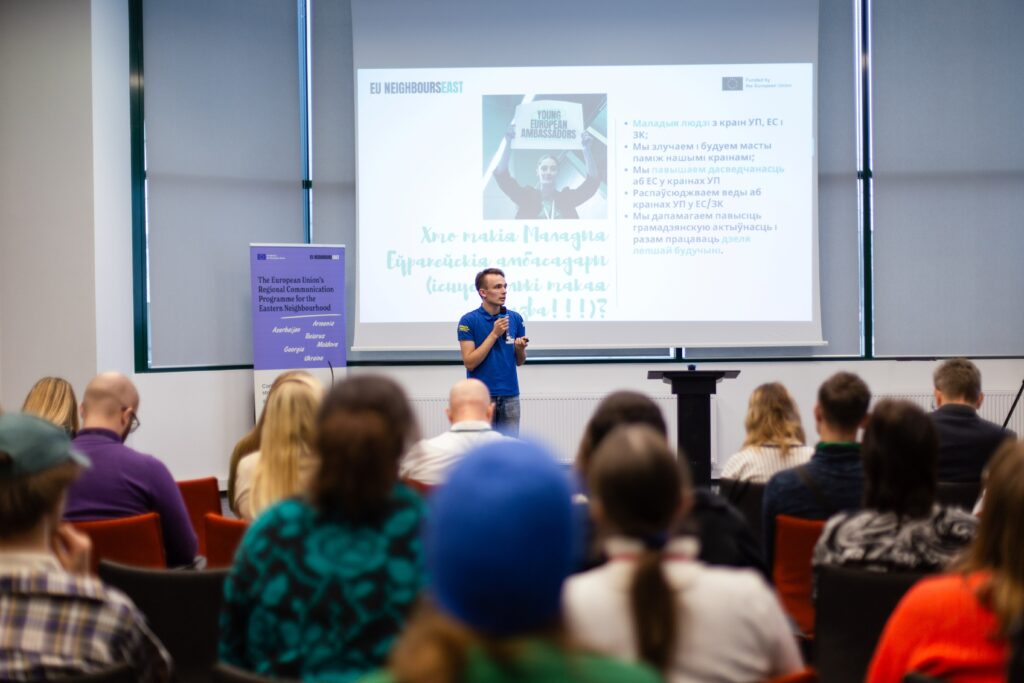
SALT is a broad programme and has a long list of opportunities: it is designed for students, teachers, and researchers. These opportunities include scholarships for study, financial support for language learning and educational project development, grants for internships and research in EU countries, and mentoring for enrolment.
The programme is available to those who have left Belarus and those who remain – to individual specialists and entire teams. How does it work? For example, researchers apply with their research project. If a European university is interested, the applicants will get an invitation to work for 3-10 months, and the SALT grant will cover all the costs of their stay.
“My studying in Europe began with several important decisions,” Eugene, a SALT participant said. “The first was to complete my studies in Belarus. When choosing a university and a country, I was guided by several criteria. The important factors were similar language, university rating, feedback from acquaintances, as well as the standard of living and political situation in the country. I chose a university in Vilnius, where I found an interesting course. I applied for the scholarship and filled in the questionnaire. I also had an interview where I described my situation. Later, I was informed that the application had been approved. The bursary covered accommodation and household needs, freeing up time and resources for training and professional development. At this point, my work experience is related to my future profession.”
The first project competition is already completed. Thanks to it, dozens of students, teachers, and scientists from Belarus had the opportunity to study and work in Europe. Right now, the second one is in operation. It is called SALT II and contains seven grant programmes in place until 2025. Applications for student scholarships have already been accepted. But there are other options that you can find on the EU4Belarus official website.
The College of Europe in Natolin: all tuition fees covered
The College of Europe is located in Warsaw’s Natolin neighbourhood. It offers courses in English and French. Proficiency in English is a necessity. At the same time, there is the possibility of conditional admission with poor French if the student undertakes to reach A2/B1 level before the start of the academic year (the college helps with this).
“This is where the future leaders of society learn,” says Jakub Kubica, Head of Communications and Cultural Programmes at the College of Europe in Natolin. “Our field of work may sound too broad – European interdisciplinary studies. But it is exactly the kind of space our students need. They can choose the courses and disciplines they need for their future careers, such as cybersecurity, digital, or climate transition.”
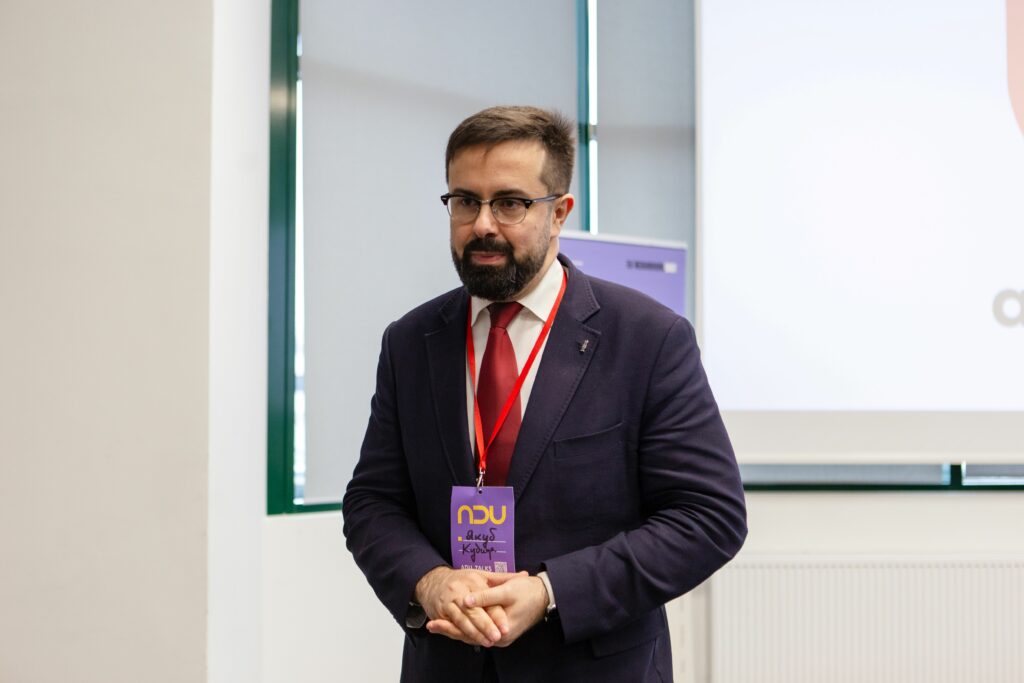
The College of Europe now has students from more than 35 countries studying and living on the same campus.
Belarusians entering the College of Europe can benefit from several scholarships – for graduates in history and related subjects, journalism and media and many more.
The opportunity is available to young people with a Master’s or Bachelor’s degree in their final fourth year of study, as well as to holders of PhDs. Courses can be self-selected. The College of Europe representatives say that in the last five years they have never had two students with the same programme on the same course.
You can apply for the next academic year free of charge online, from October to mid-January. It is important to have a good level of English and be able to say a few words about yourself in French if you are selected for interview, while committing to learning communicative French by September. All the details can be found on the college’s official website.
What is EU4Youth?
This initiative supports the desire of young people in the Eastern Partnership countries for a democratic life. It offers grants, technical assistance and scholarships to young people. In 2024, Belarusians will have access to a game in a special chatbot, as well as an e-learning course on entrepreneurial skills and creative thinking. The self-assessment tool for young entrepreneurs is available now, but currently only in Ukrainian.
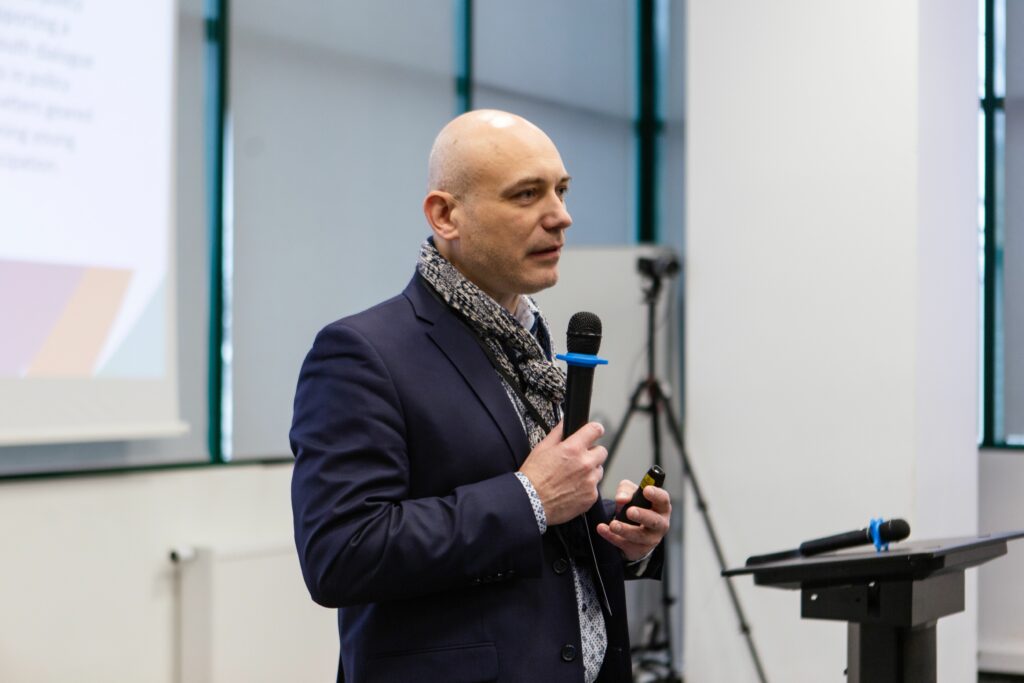
Green House for social innovators is now available among the grants – you can already try to apply for it. The goal of the project is to support socially responsible enterprises in Georgia, Belarus and Ukraine, focusing on a sustainable “green” and digital business model, attracting mentors and investors, and international exchange programmes.
European Solidarity Corps and Erasmus+: Volunteering and Youth Projects in Europe
The programme is supported by 11 SALTO (Support, Advanced Learning and Training Opportunities) resource centres in several countries, where young people can participate in a variety of activities. The main audience is between 13 and 30 years old. The Erasmus+ programme conducts various types of projects (youth exchanges, training courses, seminars, conferences, and educational visits). Young people, including those from Belarus, can implement their volunteer project in European countries for a period from two weeks to 12 months with the financial support of the European Solidarity Corps programme.
Belarusian organisations are supervised by SALTO Eastern Europe and the Caucasus (SALTO EECA). On its website, you can find opportunities for Belarusian youth, find new partners, and learn more about the regional aspects of youth work in the Eastern Partnership countries. The calendar with available projects is constantly updated on the official SALTO website.
European Humanities University: free science and several study options
The European Humanities University (EHU), based in Vilnius, is probably the best-known educational brand among those presented to Belarusians. Its key feature is liberal learning, that is an educational model of liberal arts and sciences where the student chooses the trajectory of his or her own learning.
EHU traditionally offers not only classical education, but also international activities, open lectures, and a Summer School. And most of the opportunities offer financial support for student projects and studies.
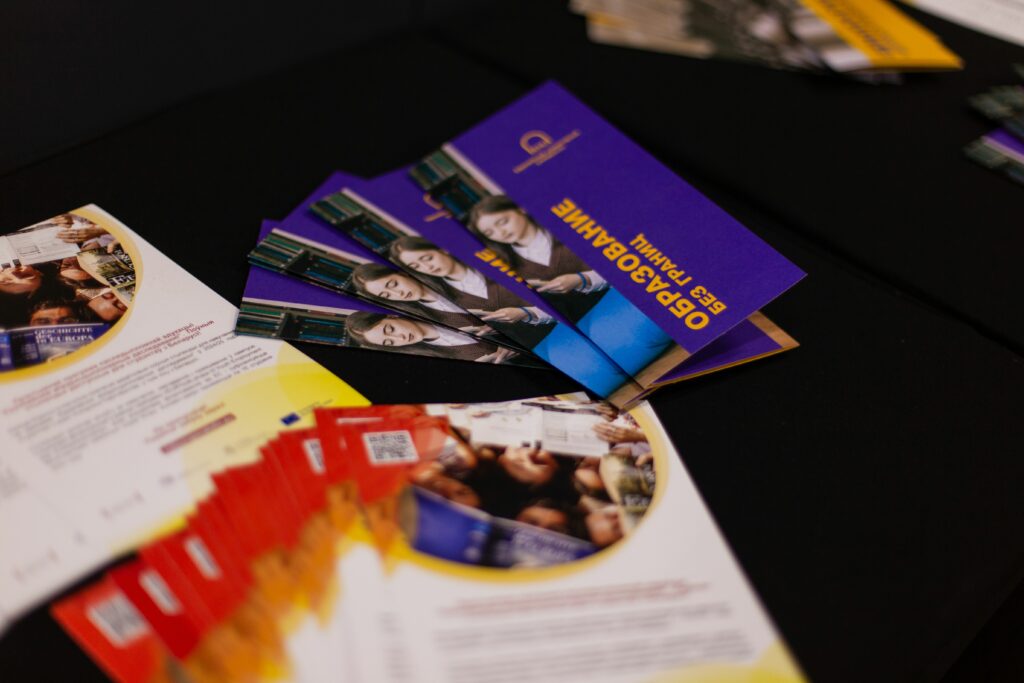
Among the new areas of study at EHU are the LLM programmes in International Trade and Business Law. They help you to advance your career and become a lawyer competent in international matters.
Another fresh offering is the Bachelor of Arts in History. This programme aims to explore important aspects of history in a contemporary context. Recruitment will open already in the next academic year.
To find out more, please check the EHU’s official website.
Free Belarusian University: online education from Belarusians and in Belarusian language
The Free Belarusian University (FBU) is not a full-fledged university yet. It is an online educational platform created by Belarusians with the support of several European institutions and foundations. It aims to become a digital university.
“We offer modern and quality education to Belarusians regardless of where they are – inside or outside Belarus. And what is very important – mainly in the Belarusian language” Ales Lahviniec, Programme Director of the University, says. “We want to offer up-to-date knowledge in key areas, considering the pan-European experience. Our courses receive certification from our European partner universities. Given the current situation in Belarus, we are trying to become a platform that will contribute to a better understanding of the processes that are taking place now in politics, economy, and society. And we will need well-trained professionals.”
At the Free Belarusian University, students can study for free and, if they wish, remain anonymous. More information can be found on the initiative’s official website.
MOST READ
SEE ALSO

No, time is not on Russia‘s side

Be one step ahead of a hacker: check simple cybersecurity tips!

Rhisoma Lab: the intercultural hub for creatives in Tbilisi
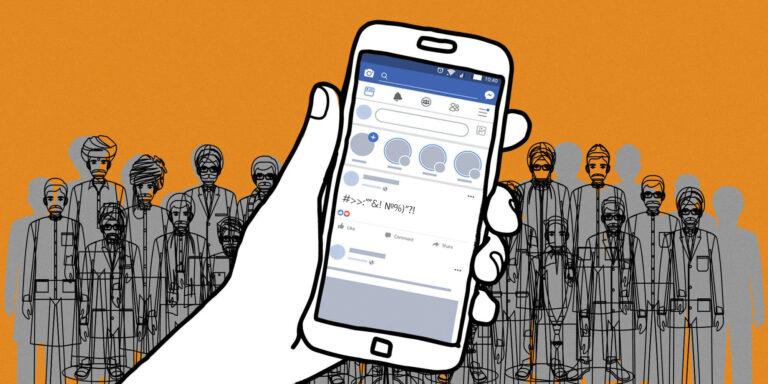
How to act and move on: strategies for women facing discrimination and online harassment
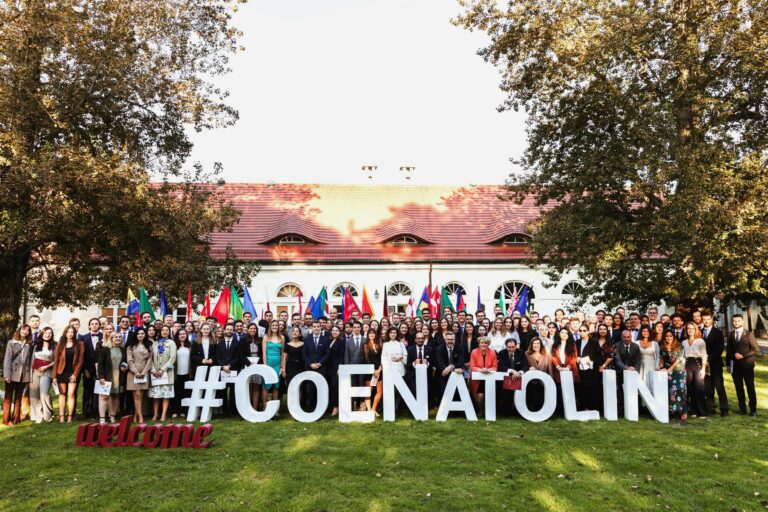
‘I always wanted to study again’: how to get an education in the EU and change your country for the better
More campaign pages:
Interested in the latest news and opportunities?
This website is managed by the EU-funded Regional Communication Programme for the Eastern Neighbourhood ('EU NEIGHBOURS east’), which complements and supports the communication of the Delegations of the European Union in the Eastern partner countries, and works under the guidance of the European Commission’s Directorate-General for Neighbourhood Policy and Enlargement Negotiations, and the European External Action Service. EU NEIGHBOURS east is implemented by a GOPA PACE-led consortium. It is part of the larger Neighbourhood Communication Programme (2020-2024) for the EU's Eastern and Southern Neighbourhood, which also includes 'EU NEIGHBOURS south’ project that runs the EU Neighbours portal.

The information on this site is subject to a Disclaimer and Protection of personal data. © European Union,







